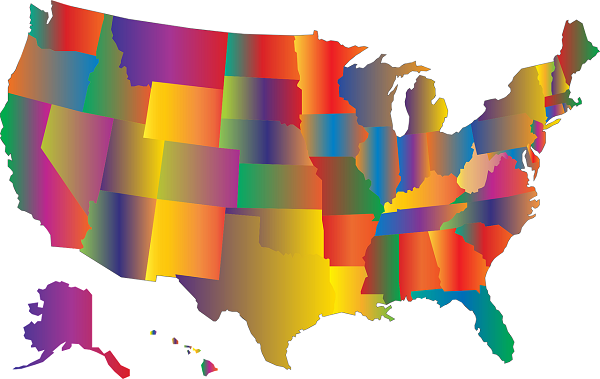Before you enroll in a graduate degree in early childhood education, one of the 50 highest paying master’s degrees, you want to be sure that your education will pay off – even if you move. Teachers of preschool, kindergarten and elementary school are often required to attain a state-issued license or certification, so relocating to a new state can mean having to jump through hoops to become certified in your new state. If you are a currently licensed teacher who is considering moving, or even a current graduate student who wants to know what career challenges you may face if you decide to relocate, then you should become familiar with the Interstate Agreement.
IMAGE SOURCE: Pixabay, public domain
How the Interstate Agreement Can Assist Teachers Who Relocate
The vast majority of states in the U.S. participate in some capacity in the National Association of State Directors of Teacher Education and Certification (NASDTEC)’s Interstate Agreement. Under this agreement, participating states and territories agree to accept some credentials, including certain kinds of educator certificates and certifications, from states that meet certain requirements.
It’s important that early childhood educators who are considering a move understand precisely what their intended new state’s interstate agreement entails. Teachers shouldn’t assume that all states that have signed the Interstate Agreement will automatically award full reciprocity to licensed teachers from all other states. Instead, a state may agree to accept only specific types of certifications or only credentials from states with comparable initial certification requirements.
Sometimes the certification awarded through the Interstate Agreement is only a temporary or provisional credential. This temporary teaching license buys the educator time and allows them to begin teaching while they work toward full licensure in their new state. If a teacher granted a temporary license through the Interstate Agreement fails to meet full licensure requirements in their new state within the required timeframe, that provisional license could expire.
Generally, it’s easier to transfer your teaching certification from a state with more rigorous licensing requirements to a state with less demanding requirements than vice versa. For example, teachers with a master’s degree can transfer to a state that requires only a bachelor’s degree without a lot of difficulty, assuming they also meet other requirements. On the other hand, teachers who have only a bachelor’s degree may have to go back to school to become certified in a state where a master’s degree is required for fully certified educators. This can mean a lot of time and expense – and, if you don’t find out until after you’ve started relocating, this surprise can really throw off your career plans.
The good news is that many licensure requirements – such as a bachelor’s degree from a regionally accredited school, student-teaching experience and a passing score on a test like the widely used Praxis Core Academic Skills for Educators – are consistent across states.
Tips for Making a Move Easier on Early Childhood Educators
Even if the state to which you’re intending to move participates in the Interstate Agreement, it may have certain limitations or restrictions that can complicate moving. It’s important to begin planning for your move early on and put yourself in the best professional position possible so that you can more easily get your early childhood education credentials fully established in your new state. For example, becoming certified in the same state where you graduated from your early childhood education degree program can make it easier to get certified in a new state than attempting to obtain first-time teaching certification with a degree from another state, the NASDTEC reported.
Further, some states differentiate between how the interstate agreement applies to experienced teachers compared to inexperienced teachers. If you don’t have a minimum amount of teaching experience in the state in which you initially acquired teaching certification, getting certified in your new state could be a lot more difficult and demanding. If possible, it may be worth sticking around in your original state long enough to meet any applicable experience requirements so that the process of transferring your early childhood education certifications is easier.
If you choose to teach in a school district that is facing severe teacher shortages, you may be able to start teaching in a new state faster through special programs like Teach For America’s Early Childhood Education initiative as you work toward full certification.
Additional Resources
How Long Is a Typical Master’s Program in Early Childhood Education?
What Is the Difference Between an M.A. and an M.Ed. in Early Childhood Education?

